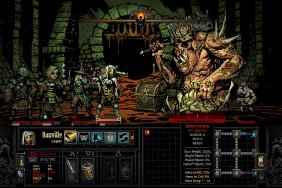PS4 and Xbox One console owners have been awoken from their slumber, with the Video Game Drought of 2015 finally coming to an end and there finally being some new releases to whet their appetite. It has been a long time coming – such was the extent of the drought that at one point I even considered picking up Rory McIlroy’s PGA Tour 2015 – but now we have Until Dawn in our grasp today, followed by Mad Max and the hugely anticipated Metal Gear Solid V: The Phantom Pain next week.
But therein lies the problem – with MGSV now mere days away, any and all games releasing in this time period are effectively being sent out to die. While Mad Max will likely pull in a healthy amount of sales on the belated back of the success of Fury Road, what will become of Until Dawn? Who will be willing to fork out money to play this oddball big-budget release so close to the date in which they finally sink their teeth into Hideo Kojima’s swansong?
Video game release calendars are an unequivocal, inarguable mess. Looking at the rundown of games to be excited for each year always presents a plethora of head-scratching decisions on behalf of publishers, with interesting new IPs being rushed out within the same week as the next Call of Duty, or a bunch of must-buy titles crammed together within the same release window forcing consumers to make a Sophie’s Choice in regards to which one they want to buy, or simply throw their wallet at GameStop and beg for it all to be over.

There must be some method behind the madness, we argue with ourselves, that would lead Sony to release Until Dawn but a few days away from The Phantom Pain. We desperately search for answers, though we know there are none. There is no excuse for Until Dawn, a PS4 exclusive that but one month ago could have pulled in decent numbers and seized advantage of a lack of new releases, to be marched out with its underwear around its ankles, readied for a spanking at the metallic hand of Big Boss. Until Dawn, a game which has been in development since the Cretaceous Period, is being left alone to suffer in the big, bad, post-MGSV world, and all we can do is wait for an earnings report from Sony in the near future in which they say that the game “failed to match sales expectations.”
But this happens each and every year without fail. Every year we will watch the summer go by with no new video games, only for the season to conclude with a sudden tidal wave of releases that promptly drown us. What do publishers suppose we are doing in these long summer months? That each day we are too preoccupied with basking in sunlight and turning our pasty flesh a satisfying shade of bronze to possibly even consider turning on a console?
While the stereotype of the shuttered hermit video game play have long since been jettisoned from out of the window, it seems unlikely that the majority of people spend each and every waking moment of the summer months in the great outdoors, and that they wouldn’t possibly want to chill out in front of their TV and play a video game in June, July or August. Yet this is the world in which publishers seem to think we live in, with them presumably having spent so much time sitting in darkened offices and shouting at Excel spreadsheets that they have forgotten what summer is really like – a season just like any other, except we spend more days having barbecues.

But I refuse to believe that all publishers wish to blindly respect the tradition of releasing no video games during this season, and that there are some employees of these companies who have advocated for them to switch things up and not sell their developers down the river as a result of subscribing to this weird theory that no one will ever buy a game in the summer. There has inevitably been some lowly soul sitting in a meeting, sweat patches rapidly forming on his ocean blue shirt as he anxiously tries to argue his case.
“Maybe we don’t release our game on the same day as Call of the Battlefield: Honor the Duty,” he says, perspiring so heavily that droplets are splashing onto the expensive oak desk he and his colleagues are gathered around. “Maybe we release it in July instead.” His manager probably told him something like “sounds interesting, kid, I’ll see what we can do,” with his eyebrows indicating that he actually means “I can’t believe this scumbag in the blue shirt with the sweat patches has expressed displeasure at one of our time-honored company policies.” The sweaty man then likely made his way out of the meeting room in order to grab some lunch, before his boss chased after him and swiftly kicked him down an empty elevator shaft. His corpse now rests eternally at the bottom of that shaft, lying side-by-side with the corpse of a man who suggested that they should no longer waste resources on tacked-on Kinect compatibility.
No matter how much I desperately rack my brain in order to decipher an intelligible reason as to why Until Dawn and Mad Max are releasing so close to MGSV, I cannot think of one. There is no way that the financial bottom line of each game won’t be affected by The Phantom Pain‘s release, and their respective publishers should know this. So how many good games have to die until this madness ends? How many quirky single-player releases have to be fed into the baying jaws of a mammoth online multiplayer shooter until the employees who are pushed down those elevator shafts are listened to? How many summers must we endure without video games until publishers stop to consider that some of us actually quite like to play games even if it’s sunny outside?








